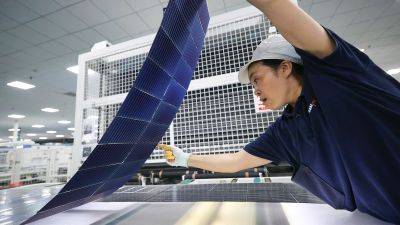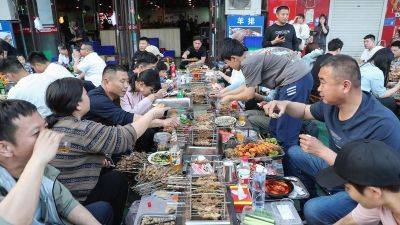How emerging nations are already dethroning the West
Even other members within Brics have been reluctant to embrace belt and road projects, arguably for fear of alienating key Western powers which with they have close relationships.
The rapidly expanding family of Brics nations can economically benefit from taking part in the Belt and Road Initiative, in the form of infrastructure networks linking them to the world’s second-largest economy, measured by gross domestic product. Member-nations also benefit from being connected to each other and having alternative sources of project financing.
China appears to be taking advantage of its strengthened position of international authority as geopolitical rivals mired in domestic woes are less willing or able to take any united stand against other nations that support the initiative.
Hung Tran, a non-resident senior fellow at the Atlantic Council’s Geoeconomics Centre, writes that “many Belt and Road Initiative loans have been concluded using Chinese laws and dispute settlement mechanisms instead of Western ones, such as British laws traditionally used in international bank lending”. According to him, China is “continuing to open up to the outside world, but presumably more on Chinese terms and less on Western terms”.
However, high-level financial sources have recently suggested to me that Jin’s current five-year term at the AIIB is unlikely to be extended and that the bank could become a more important funding source for the initiative.
As observed in a briefing published by the Observer Research Foundation, “Although Brics as an entity has not signed any memorandum of cooperation with the [Belt and Road Initiative], nor has it ever jointly published any statement of intent about taking part in China’s flagship project, in Chinese







